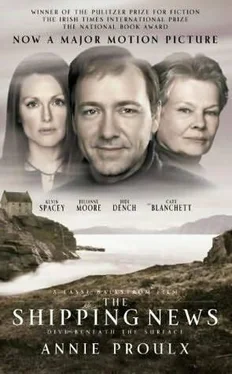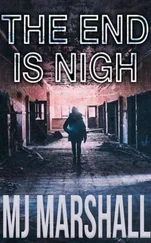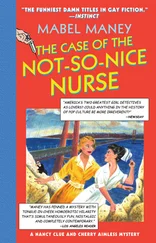“No, Bunny. She’s gone to sleep. She’s in heaven. Remember, I told you?” For he had protected them from the funeral, had never said the word. Dead.
“And she can’t get up again?”
“No. She’s sleeping forever and she can never get up.”
“You cried, Daddy. You put your head on the refrigerator and cried.”
“Yes,” said Quoyle.
“But I didn’t cry. I thought she would come back. She would let me wear her blue beads.”
“No. She can’t come back.” And Quoyle had given away the blue beads, all the heaps of chains and beads, the armfuls of jewel-colored clothes, the silly velvet cap sewed over with rhinestones, the yellow tights, the fake red fox coat, even the half-empty bottles of Trésor, to the Goodwill store.
“If I was asleep I would wake up,” said Bunny, walking away from him and around the house.
¯
She was alone back there, the stunted trees pressing at the foot of the rock. A smell of resin and salt. Behind the house a ledge. A freshet plunged into a hole. The color of the house on this side, away from the sun, was again the bad green. She looked up and the walls swelled out as though they were falling. Turned again and the tuckamore moved like legs under a blanket. There was a strange dog, white, somehow misshapen, with matted fur. The eyes gleamed like wet berries. It stood, staring at her. The black mouth gaped, the teeth seemed packed with stiff hair. Then it was gone like smoke.
She shrieked, stood shrieking, and when Quoyle ran to her, she climbed up on him, bellowing to be saved. And though later he beat through the tuckamore with a stick for half an hour they saw no dog, nor sign. The aunt said in the old days when the mailman drove a team and men hauled firewood with dogs, everyone kept the brutes. Perhaps, she said doubtfully, some wild tribe had descended from those dogs. Warren snuffled without enthusiasm, refused to take a scent.
“Don’t go wandering off by yourselves, now. Stay with us.” The aunt made a face at Quoyle that meant-what? That the child was nervy.
She looked down the bay, scanned the shoreline, the fiords, thousand-foot cliffs over creamy water. The same birds still flew from them like signal flares, razored the air with their cries. Darkening horizon.
The old place of the Quoyles, half ruined, isolated, the walls and doors of it pumiced by stony lives of dead generations. The aunt felt a hot pang. Nothing would drive them out a second time.
Oh make ‘er fast and stow yer gear,
Leave ‘er, Johnny, leave ‘er!
An’ tie ‘er up to the bloomin’ pier,
It’s time for we to leave ‘er!
OLD SONG
THE FIRE was dying. Dominoed coals gave off the last heat. Bunny lay plastered against Quoyle under the wing of his jacket. Sunshine squatted on the other side of the fire piling pebbles on top of each other. Quoyle heard her murmuring to them, “Get up there, honey, you want the pancakes?” She could not stack more than four before they fell.
The aunt ticked off points on her fingers, drew lines on the rock with a burned stick. But they could not live in the house, said Quoyle, perhaps for a long time. They could live in the house, said the aunt, the words lunging at something, but it would be hard. Ah, even if the house was like new, said Quoyle, he couldn’t drive back and forth on that road every day. The first part of the road was god-awful.
“Get a boat.” The aunt, dreamily, as though she meant a schooner for the trade winds. “With a boat you don’t need the road.”
“What about stormy weather? Winter?” Quoyle heard his own idiotic voice. He did not want a boat, shied from the thought of water. Ashamed he could not swim, couldn’t learn.
“Rare the storm a Newfoundlander couldn’t cross the bay in,” said the aunt. “In the winter, the snowmobile.” Her stick grated on the rock.
“A road still might be better,” said Quoyle imagining coffee roaring out of a spigot and into his cup.
“Well, granted we can’t live in the house for a while, maybe two or three months,” said the aunt, “we can find a place to rent in Killick-Claw where you’ll be near your newspaper work until the house is fixed. Let’s drive up this afternoon, get a couple of motel rooms and see if we can find a house to rent, line up some carpenters to start on this place. Want a babysitter or a play school for the girls. I’ve got my own work to do, you know. Locate a work space, get set up. That wind is coming stronger.” The coals fountained sparks.
“What is your work anyway, Aunt? I’m embarrassed to say I don’t know. I mean, I never thought to ask.” Had blundered into the unlikely journey knowing nothing, breathing grief like a sour gas. Hoped for oxygen soon.
“Understandable under the circumstances,” said the aunt. “Upholstery.” Showed her yellow, callused fingers. “I had the tools and fabric crated up and shipped. Should be here next week. You know, we ought to make a list while we’re right here of the work to be done on this place. Needs a new roof, chimney repair. Have you got any paper?” She knew he had a boxful.
“Back in the car. I’ll go back and get my notebook. Come on, Bunny, sit here. You can keep my place warm.”
“See if you can find those crackers on the front seat. I think Bunny would perk up if she had a cracker.” The child scowled. There’s a sweet expression, thought the aunt. Felt the wind hard off the bay. A roll of cloud on the edge of the sea and the black and white waves like a grim tweed.
¯
“Let’s see,” said the aunt. She had thrown new wood on the fire and the flames sprang about under the gusting wind. “Window glass, insulation, tear out the walls, new wallboard, a new door, a storm door, repair the chimneys, stovepipe, new waterline from the spring. Can these children abide an outhouse?” Quoyle hated the thought of their small bottoms clapped onto the roaring seat of a two-holer. Nor did he like the idea for his own hairy rump.
“Upstairs floors need to be replaced, the kitchen floor seems sound enough.” In the end Quoyle said it might be cheaper to build a new house somewhere else, the Riviera, maybe. Even with the insurance and what the aunt had, they might not have enough.
“Think we’ll manage. But you’re right,” she said. “We probably should clear a driveway from the mystery parking lot to the house. Maybe the province will do something about the road. We’ll probably end up paying. Could be expensive. Lot more expensive than a boat.” She stood up, hauled her black coat around and buttoned it to the neck. “It’s getting mighty cold,” she said. “Look.” Held out her arm. Chips of snow landed in the loft of wool. “We better make tracks,” she said. “This is not a good place to get caught in a snowstorm. Well do I know.”
“In May?” said Quoyle. “Give me a break, Aunt.”
“Any month of the year, my boy. Weather here beyond anything you know.”
Quoyle looked out. The bay faded, as though he looked through a piece of cheesecloth. Needles of snow in his face.
“I don’t believe it,” he said. But it was what he wanted. Storm and peril. Difficult tasks. Exhaustion.
On the way out the wind buffeted the car. Darkness seeped from the overcast, snow grains ticking the windshield. On the highway there was already a film of snow on the road surface. He turned in at Ig’s Store again.
“Getting some coffee,” he said to the aunt. “Want some?”
¯
“There’s a big building in there and a parking lot.”
“Oh yar. Glove fact’ry it was. Closed up years back.” The man slid two paper cups with folded ear handles at him.
Читать дальше











